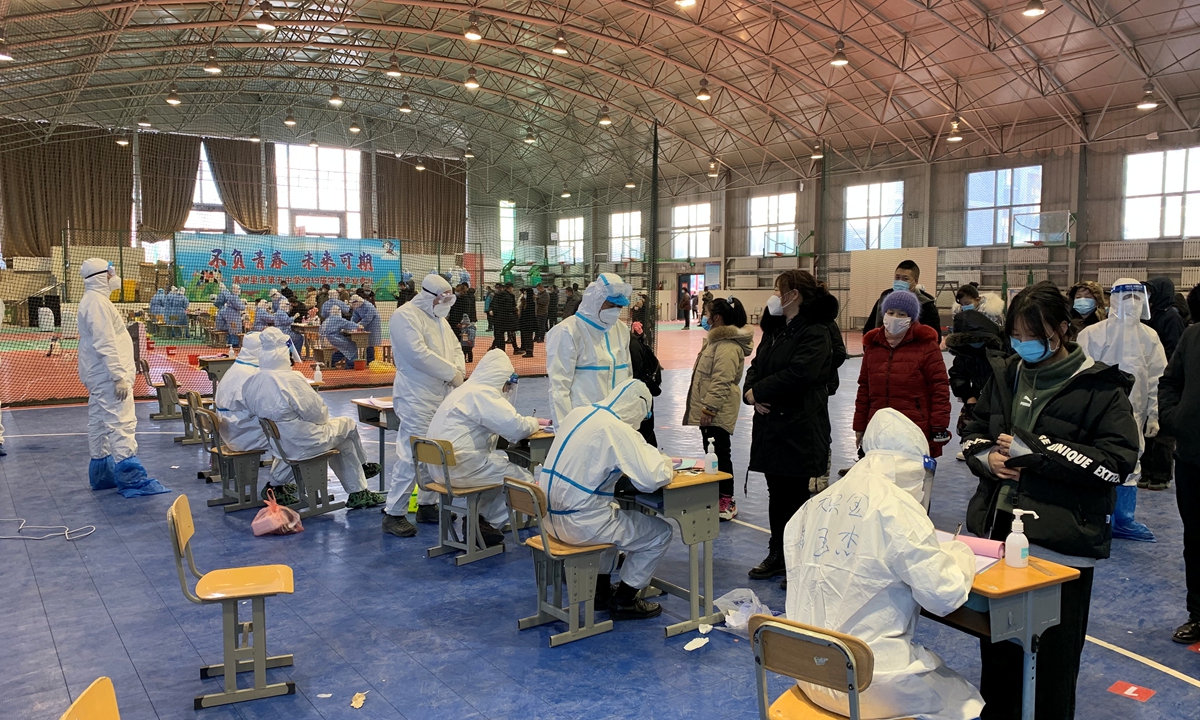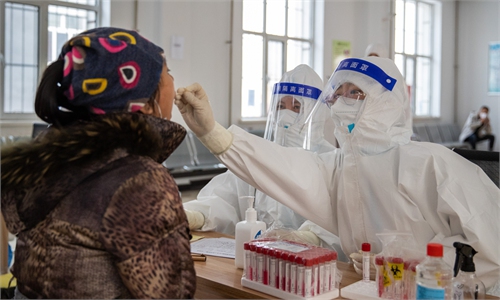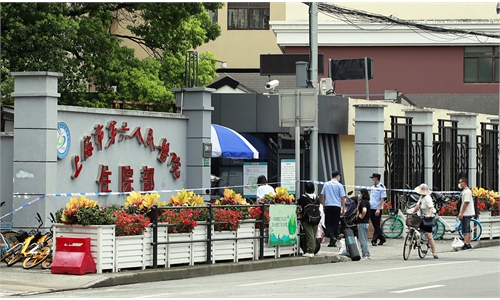China’s coordination capacity in dynamic zero-COVID strategy shows advantages of socialist system: renowned epidemiologist

Residents in Manzhouli, North China's Inner Mongolia, are queuing for the second round of mass nucleic acid testing on November 29, 2021. Photo: CFP
China has always put its people and life first when it comes to the strategy for epidemic prevention and control, whereas some other countries may think individual freedom is the most important; different ideologies lead to different strategies, said Liang Wannian, a renowned epidemiologist and academic.
"Don't you think other countries want to learn from China?" said Liang, head of the expert panel for the COVID-19 response of China's National Health Commission (NHC).
It is not an individual strategy or measure that has brought about effective epidemic prevention and control in China; it requires a combination of many factors, like Chinese people's sense of altruism, the organizational capacity of the Chinese government, and the coordination capacity of the central and local governments, Liang noted.
China's achievements demonstrate the advantages of a socialist system, as many countries would find it difficult to achieve coordination of various levels within a country, Liang said, noting that China has established a good "toolkit" such as capacity in nucleic acid detection, close contact tracking, clinical treatment, transportation, and life support.
As a country with a population of over 1.4 billion, China has shown that effectively containing COVID-19 is the biggest contribution to the international anti-pandemic fight.
China's dynamic zero-COVID policy is an essential part in the fight against COVID-19. Liang stressed that China should stick to the current strategy. The "dynamic zero" policy doesn't mean zero infections, as we cannot guarantee that local cases won't occur, but when they are detected, they must be controlled straight away, Liang noted.
The border city of Manzhouli in North China's Inner Mongolia Autonomous Region is facing huge challenges and is under pressure to prevent imported cases and the epidemic from spreading within the city and beyond Manzhouli, according to Liang.
Although there are a series of standards and norms for epidemic prevention and control concerning imported goods and related personnel, no one can guarantee that there are no risks. The core matter is how to detect and control the epidemic and how to ensure the epidemic will not spread further, especially among local communities, according to Liang.
At least 38 countries have reported confirmed cases of Omicron variant as of December 3. Liang said it is a normal phenomenon in virus variation. There are three possibilities for the variation: the virus could be transmitted without added potency; it could be worse with stronger potency and become more virulent; or it might be more transmissible, but less virulent or vice versa.
The scientific community has recognized that vaccination is highly effective in preventing COVID-19 infections, severe illness, and death. Liang noted that we should be confident as vaccines have been widely administered and drugs are being developed, and Chinese people's healthy habits are gradually being developed and improved, and the public health system is further improved.


